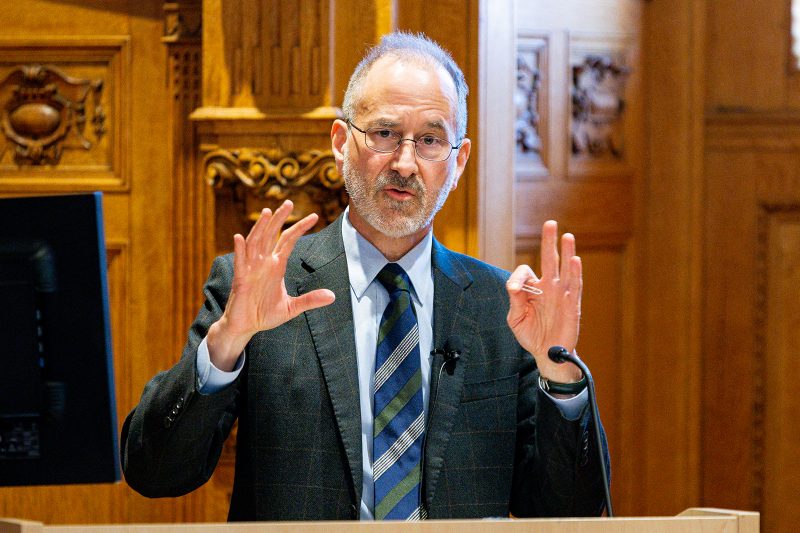On April 4, the Jackson Institute for Global Affairs co-hosted the discussion, “Humanitarian Action in a Time of Unprecedented Needs: Global Challenges and the Role of the U.S.,” featuring Richard Albright, former Deputy Assistant Secretary of the Bureau of Population, Refugees and Migration (PRM) at the U.S. Department of State.
Amb. Robert Ford, a Jackson Senior Fellow and the former ambassador to Syria, moderated the conversation, which was co-hosted by Yale MacMillan Center’s Program on Refugees, Forced Displacement and Humanitarian Responses.
As a senior U.S. diplomat, Albright advanced a wide range of U.S. economic policy, development, humanitarian, and security priorities and programs across assignments in the Middle East, South Asia, Europe and Washington. He helped develop whole-of-government policy approaches and innovative practices in the design and delivery of programs to provide protection, assistance, advocacy, and solutions for the world’s most vulnerable people.
During the discussion, Albright touched on a range of issues, including the budgetary and logistical challenges of delivering humanitarian assistance in various countries across the globe.
“Never has humanitarian action been more needed. Never has the system been more stressed,” Albright said.
Data from the United Nations show unprecedented levels of displacement. In the past decade, forced displacement has doubled. Eighty percent of refugees are living in protracted situations. The pandemic has increased the needs and funding is tight, Albright explained.
“Humanitarian assistance keeps people alive, but it isn’t a solution to underlying problems,” Albright said, citing the need for better political and security solutions.
Albright touched on the unfolding refugee and humanitarian situation in Ukraine—a country whose crops are a key source of food for the World Food Program.
Economic sanctions also complicate the picture in many countries, including Yemen and Afghanistan. Rebuilding the refugee support network in the U.S. has also been a major challenge, he said.
